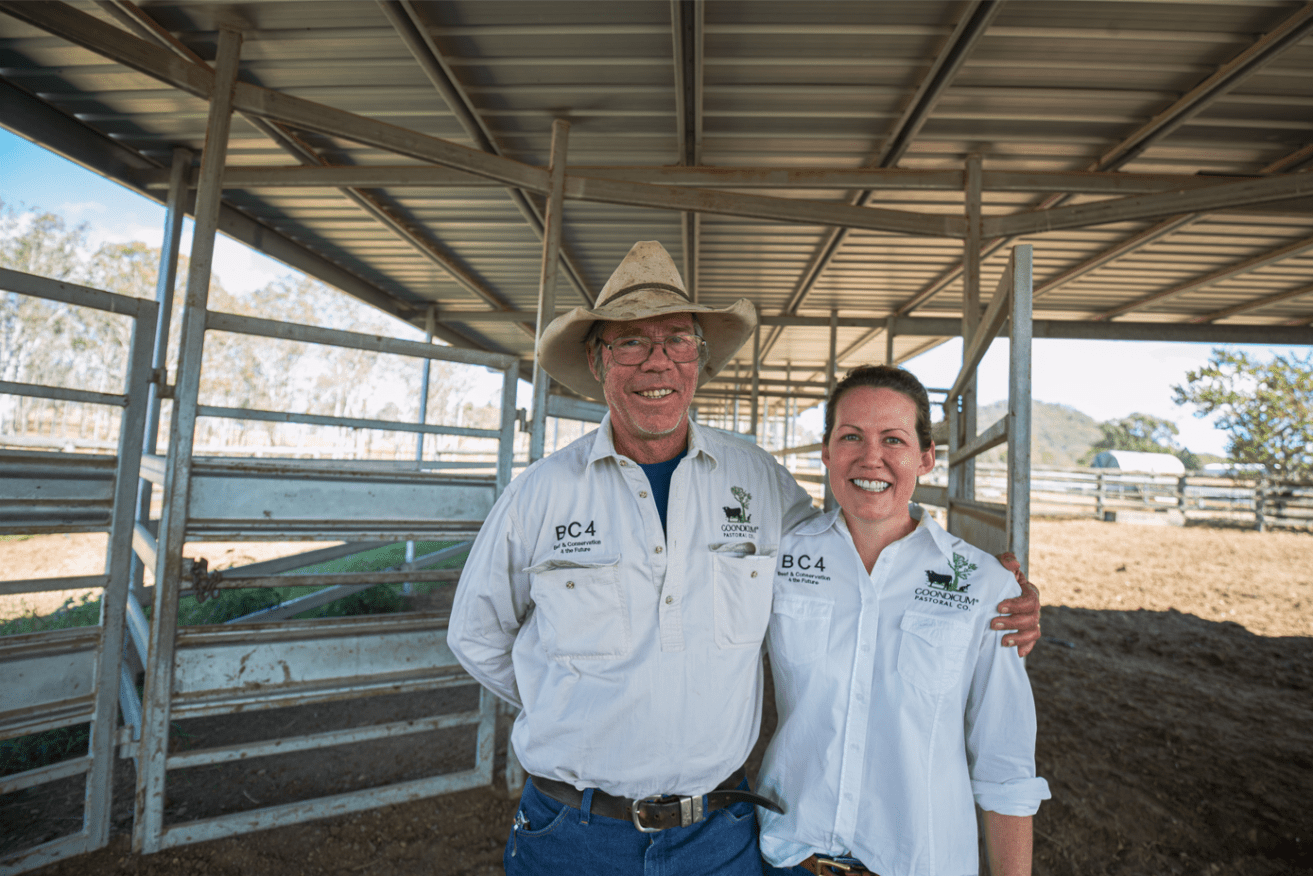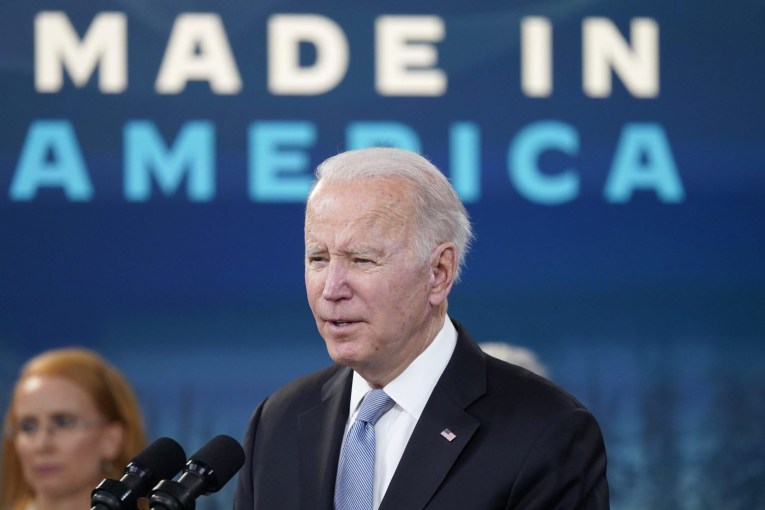Carbon sinks bubble up the dollars for state’s rural economy
Queensland farmers have a new, lucrative, high-volume, but invisible crop within their reach, where the opportunities seem ripe for the picking in a carbon constrained world.


Rob and Nadia Campbell, Goondicum Station, Monto. (Photo: Supplied)
But for the moment it’s the Queensland taxpayer footing the bill.
The Queensland Government, through its $25 million Land Restoration Fund, has purchased its first tranche of carbon credits from Central Queensland graziers Nadia and Robert Campbell.
The couple from Goondicum Station near Monto, have worked in partnership with commercial agent GreenCollar to develop the project and facilitate the sale.
In much the same way as any new crop is developed – from cultivation, germination and then harvest – the Campbells and GreenCollar have worked to sequester more than 35,000 tonnes of carbon on their property at the head of the Burnett River, with a forecast to capture more than 165,000 tonnes over the next 25 years.
Part of that first yield, measured as Australian Carbon Credit Units (ACCUs), has been sold to the Queensland Government at an undisclosed price.
Further purchases have been confirmed for the next 10 years.
The announcement came in the same week Farmers for Climate Action released a report that highlighted Australian farmers could earn $34.4b – $43b by 2040 from carbon related projects.
Goondicum Station was one of the first projects to be registered under the Land Restoration Fund, which continues to be a cornerstone of the Queensland Government’s ‘Climate Action Plan’, as previously reported by InQueensland.
According to a statement from the Campbells, the project they have undertaken with GreenCollar has delivered significant biodiversity benefits improving habitat for threatened flora and fauna, including endangered glossy black cockatoos, greater gliders, koalas and brush-tailed rock wallabies.
“The beauty of our carbon project and working with the LRF is that they’re not two mutually exclusive things when it comes to integrating with our beef production. They co-exist, and we’re actually seeing an improved environment for our cattle because of the project,” Nadia Campbell said.
“A better-quality environment means less overheads for us in terms of land management, and we’re seeing those rewards by improving canopy coverage and regenerating large areas of forest.”
Commonly referred to as carbon farming, the growing industry is ringing alarm bells in some sectors of the rural economy, with concerns the enterprise locks up productive land and relies on fewer inputs and labour, leading to spending declines in rural and regional communities.
GreenCollar chief operating officer Nerida Bradley has moved to allay those fears, citing the Goondicum Station project as a model of investment generation in the local economy, with the enterprise using local businesses for supplies and contractors.
“On Nadia and Rob’s place, the carbon project is specifically designed to deliver biodiversity improvements for important endangered species and support local investment and job creation,” she said.
“With the Queensland Government’s latest $25 million round of LRF funding, there is a real opportunity for Queensland farmers to continue to lead and remain the ‘gold standard’ for carbon projects across the country, demonstrating the tangible value of biodiversity improvements alongside carbon abatement and sequestration.”
Despite some ongoing reservations about carbon farming, the revenue upside appears to be building momentum.
More than 500 farmers, landholders and Indigenous representatives gathered virtually last Friday for the Carbon Market Institute’s 5th annual Carbon Farming Industry Forum, where employment generation was high on the agenda.
They will discuss how to maximise employment, environment and Indigenous benefits as well as how to maximise impact for farmers and agricultural exporters.
Speakers included National Farmers’ Federation CEO Tony Mahar and Meat and Livestock Australia managing director Jason Strong.
With standardised international trading rules due to be confirmed at next month’s COP 26 UN Climate Change Conference in Glasgow, Carbon Market Institute CEO John Conner said the day was coming when farmers would be able to access international markets and carbon money for their hard work.
“Carbon farmers are involved in trying to stop emissions of heat trapping gases into the atmosphere, as well as drawing them down into vegetation and soils, and that’s something we’re going to need a lot more of to get to net zero emissions,” he said.
“It’s a win for farmers because it’s a stream of carbon revenue that can build resilience to some of the climate shocks and it’s a win for those farms and the environment because you build up the health of the ecosystem more generally.”
Nadia Campbell, who also spoke at the forum, believes the project has even resulted in better quality beef through improvements to their grazing operation such as upgraded pastures and reduced soil erosion.
“It’s also given us a diverse income stream. In times of drought when you’re running lower numbers of stock it is certainly comforting knowing you’ve got another form of income coming in through carbon. It’s also allowed us to invest and put in improved water infrastructure and fencing on the property.”
“I really can’t fault it. It’s dovetailed perfectly into our business, it’s enhancing our ecological health, it’s enabling us to help the environment. It’s improving the quality of land for our cattle as well.
“We provide protein to the world and are paid for that but now we can also be paid for the carbon we sequest. My message for other farmers and especially graziers is to make hay while the sun shines.”









